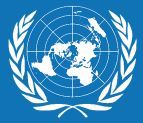 Everything you need to know about today’s coverage of Israel and the Mideast.
Everything you need to know about today’s coverage of Israel and the Mideast.
How is Big Media reacting to Palestinian unity? What does UN disarray on Syria mean for Israel and Iran? And why is the BBC telling its staff to handle an Al-Qaida cleric extra nonjudgmentally?
Join the Media Cheat Sheet Page on Facebook.
Israel and the Palestinians
• A Financial Times staff-ed says Israel should abide by Palestinian demands, while a staff-ed in The Australian sees right through Hamas-Fatah unity shenanigans:
Given Mr Abbas’s relative moderation and the acceptance he enjoys with governments across the world, the intention is clearly to provide the new set-up with a benign face that will dilute the reality of its make-up as a partnership between Fatah and Hamas, with the latter not having retreated one iota from its refusal to recognise Israel or its commitment to its violent destruction as demanded by Iranian President Mahmoud Ahmadinejad.
This is window-dressing that all governments anxious to see genuine progress towards Middle East peace and opposed to terrorism should find unacceptable.

• Jonathan D. Halevi on the unity deal:
The Hamas leaders are trying to implement the strategy of the Arab Spring in the Palestinian arena. They assume they will win an overwhelming majority in the elections to the representative Palestinian institutions and, thereby, complete their historic takeover of the Palestinian national movement. In other words, they view Abbas as the doorman who opens the gates to the Trojan horse . . . .
It appears that the Fatah leaders prefer swimming with the current to sinking beneath it. Abbas thereby buys himself some quiet for an interim period. When it ends, though, he will likely find himself without assets and in a minority in the representative institutions of the Palestinian national movement.
• A Sydney Morning Herald staff-ed also weighs in on unity.
Iranian Atomic Urgency
 • A Christian Science Monitor op-ed points out that the UN’s muddled response to Syria increases the chances of an Israeli attack on Iran.
• A Christian Science Monitor op-ed points out that the UN’s muddled response to Syria increases the chances of an Israeli attack on Iran.
The diplomatic disarray over Syria sends the message that other daunting regional problems, such as the Iranian nuclear crisis, may also be out of reach of a negotiated solution, some diplomatic experts say. And with Russia so blatantly taking the side of its friend and client in the region, Syria’s Assad government, Israel may well conclude that the same scenario would probably be repeated if world powers (including Russia) were to again try negotiating with Iran . . .
The problem, Professor Oppenheimer says, is that a sense among the Iranians that Russia will shield them as it did the Syrian regime “only makes a military confrontation more likely.”
“The more confidence the Iranians feel as a consequence of the Syria vote, the less likely they are to take the lessons they should be taking,” he says.
• I’ll sleep better now that Sheikh Nasrallah cleared the air:

• Worth reading: Syria: Iran’s Achilles Heel
• At the Globe & Mail, a former Canadian diplomat is concerned about a nuclear Iran but is also concerned that over-hyped Israeli intelligence and arbitrary deadlines will lead the world into an avoidable war. I’m not sold on Paul Heinbecker’s parallels to Iraqi intelligence assessments, but judge for yourself. Michael Tomasky makes a similar case.
• AP picks up on the story of Radio Radisin, a private Farsi-language station broadcasting music, talk and peace from Tel Aviv to Iranian listeners:
It takes calls from Iranian listeners who often criticize the regime in Tehran and express affection for Israel.
For fear of exposing these callers — and having them branded as collaborators by the Iranian regime — the station asked The Associated Press not to record the conversations.

• The diplomatic corps is stepping up its contingency plans for war with Iran. According to YNet:
Diplomatic officials deployed in Israel are particularly concerned about the possibility of a missile offensive on the Jewish State that would prompt thousands of Israeli citizens with foreign passports to seek evacuation from country.
Arab Spring Winter
• Following up on the leaked emails revealing how Bashar Assad was coached for his interview with Barbara Walters, HonestReporting’s Simon Plosker asks at The Commentator:
Is it any wonder that Assad believed the Western media could be manipulated to serve the regime? Not if one considers that the same methodology has been applied by Israel’s enemies for years.
• Russia’s Foreign Minister, Sergei Lavrov, visited the Butcher of Damascus. Same old, same old as Syrian blood flows in the streets. WSJ says it all. Meanwhile, The Media Line asks, What’s Russia thinking?

• Since vetoing a UN condemnation of Syria, Memri reports a rise in Arab calls to boycott Russia and China.
• CNN: The Pentagon is now assessing what it can do in Syria, if called upon to get involved:
One of the senior U.S. officials called the effort a “scoping exercise” to see what capabilities are available given other U.S. military commitments in the region.
Both officials pointed out that this type of planning exercise is typical for the Pentagon, which would not want to be in the position of not having options for the president, if and when they are asked for . . .
In this type of analysis being done, the military would typically look at all options ranging from humanitarian relief, to support for opposition groups, as well as outright military strikes, although that is an unlikely option, both officials said.

• Sources in Homs tell the BBC and The Guardian that the city’s under constant and indiscriminate shelling.
• Robert Satloff on the crisis of US-Egypt relations and the democracy NGOs:
While it has been no secret that elements of the Egyptian regime (both before and since the revolution) have been incensed at what they perceive to be U.S. meddling in Egypt’s internal affairs via the operations of these NGOs, a tacit bargain has permitted them to stay in business for years, without formal registration. One of the great ironies of the current crisis is that a revolution whose most democratic and liberal proponents benefitted from the training provided by U.S. NGOs has now turned on those very institutions.
• Bahrain’s turning away journalists who want to cover the anniversary of the country’s protests. The excuse? Too many reporter applying for visas. Authorities who haven’t felt Big Media’s love evidently don’t believe the flip side of disproportionate coverage applies here.
The rejected journalists include New York Times columnist Nicholas Kristof, who was detained in Bahrain while watching protests in December, along with correspondents for the BBC, the Wall Street Journal, the Christian Science Monitor and other outlets. Several took to Twitter, saying they received letters citing the “high volume of requests” as the reason for being turned down.
Rest O’ the Roundup

• BBC staff were instructed to handle Abu Qatada, a jailed jihadi cleric, with special care.
The guidance was issued at the BBC newsroom’s 9.00am editorial meeting yesterday, chaired by a senior manager, Andrew Roy.
According to notes of the meeting, seen by The Daily Telegraph, journalists were told: “Do not call him an extremist – we must call him a radical. Extremist implies a value judgment.” . . .
BBC staff were also cautioned against using library images suggesting the cleric is overweight, because he has “lost a lot of weight”.
This morning, I blogged why why the nonjudgmental language and unusual image instructions are problematic.
(Image of Lavrov via YouTube/russianembassy, jet via Flickr/US Air Force)
For more, see yesterday’s Media Cheat Sheet.

